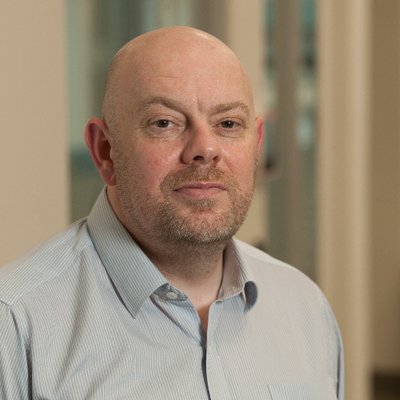
Silicon Valley Unveiled: Insights and Inspiration for Scottish Founders from TechScaler’s 3-Week Immersion
When a cohort of Scottish founders embarked on a three-week immersion in Silicon Valley with TechScaler, they knew they’d be exploring the global epicentre of innovation. But what they encountered was far more than new networks and pitch insights. It was a transformative experience that challenged them to rethink their approach to growth, ambition, and support in Scotland’s startup ecosystem.
Kayla-Megan Burns, a member of the Strathclyde Inspire community and part of the TechScaler cohort, brought the insights from this experience to the Strathclyde Inspire Hub. They invited some of their cohort members to share their learnings in a panel discussion led by Strathclyde Inspire Supporter Innes Taylor, who drew from his own experience scaling and exiting a medical device startup. The panel featured Lewis O’Neil, Founder of Niovant; Nicole Christie, Founder of Alvah and previous co-founder of Sliick and Tax Torch; Angela Prentner-Smith, Founder of This Is Milk and Neve Learning; Sam Forsberg, Founder of Raven Business Software; and Kayla-Megan Burns, Founder of Podplistic.
Alan Feighery, Start Up Manager at Strathclyde Inspire, shares the key learnings from the session, including reflections on cultural contrasts and insights on how Scotland can foster its own ambitious entrepreneurial landscape.
Feeling Like the “Smallest Fish” in a Big Pond
In Silicon Valley, ambition is the air they breathe. For many in the cohort, this brought a sense of being the “smallest fish in the pond,” surrounded by people talking about $2 million investments as casually as discussing the weather. They met founders who, even with startups barely a few months old and minimal prototypes, confidently expected to raise half a million dollars. The experience underscored the value of thinking big and aiming high, even if it feels daunting.
A Culture of Open Networks and Shared Knowledge
One of the cohort’s most refreshing takeaways was the openness and accessibility of Silicon Valley’s network. Seasoned entrepreneurs, investors, and executives freely shared contacts and made introductions without hesitation. By contrast, in Scotland, the feeling was that social capital tends to be more cautiously guarded with introductions viewed as a limited resource.
This “pay-it-forward” approach left the founders inspired to adopt a similarly open, supportive culture back home. They recognized that shared networks and knowledge are essential for growth, and fostering a more open networking culture in Scotland could strengthen the entire ecosystem.
A Fast-Paced Environment that Fosters Speed and Scale
The Scottish founders were struck by Silicon Valley’s rapid pace. Decisions happen quickly, and ideas evolve at lightning speed. Many startups they encountered were scaling at an impressive rate, fuelled by a tech-first mindset and vast access to capital.
For founders accustomed to a more cautious approach, this fast-paced environment was eye-opening. While Scotland has a supportive environment, Silicon Valley’s speed highlighted the potential of embracing calculated risks and scaling sooner. The experience helped the cohort see that speed and ambition are not just desirable but essential for global competitiveness.


A Comfort with Failure as a Path to Success
Failure is seen as a rite of passage in Silicon Valley. In Scotland, failure is still often stigmatised, making founders cautious about discussing setbacks. But in Silicon Valley, failure is seen as a learning experience, a step on the path to success. Founders with failed ventures are respected for their resilience, and investors expect them to have faced setbacks. This cultural difference challenged the cohort to embrace their own missteps as valuable lessons, viewing setbacks as an inevitable part of innovation.
Access to Investment Capital and the Value of Risk-Taking
The disparity in funding was apparent. In Silicon Valley, venture capital is abundant and aggressive, with investors ready to back bold ideas at high valuations. For many of the Scottish founders, the idea of routinely pitching for millions was eye-opening. In Scotland, funding is available but often at lower levels and with more conservative terms.
The exposure to Silicon Valley’s funding landscape illuminated the importance of embracing venture capital, understanding the difference between VC and angel investment, and seeking diverse funding sources. SAFE notes, for example, are common until larger rounds emerge. While a “Delaware flip” may be necessary for some companies seeking funding from the USA, others thought it possible to remain based in Scotland while having a presence in the USA.
The fast-paced funding culture also showed a riskier side, with an expectation for rapid scaling and the legal implications that come with it. For the cohort, this highlighted the importance of understanding legal nuances, the expectations of venture funding, and the risks of moving too fast without full clarity.
The Tech-First Mindset and the Future of AI
Everywhere they looked, technology was at the forefront in Silicon Valley. AI is embedded into nearly every startup, and autonomous vehicles were visibly navigating San Francisco streets. This tech-centric mindset, where advanced technology like AI is a default component rather than a future ambition, underscored the importance of staying at the cutting edge.
The founders noted the need to adopt a similar mindset in Scotland, integrating AI and other advanced tech into their solutions to keep pace. As they observed, AI is rapidly transforming SaaS into “Service as Software,” emphasizing the need to innovate continuously.
Working as a Team: Co-Founders and the Founder’s Circle
Silicon Valley’s preference for co-founders underscored the value of having complementary skills at the helm. Yet finding and compensating a co-founder can be challenging. For single founders, the importance of building a strong “founder’s circle”—a network of mentors, advisors, and trusted supporters—was clear. Investors want to see a team effort, whether that’s through co-founders or a strong, visible support network.
The cohort discussed the need for clear agreements, strong alignment of goals, and open communication with co-founders or early team members. Strong social contracts are critical in making the co-founder team dynamic effective, as is overcoming the reluctance to discuss topics such as remuneration and shareholding openly.
Embracing the “Be the American” Mentality
Ultimately, the trip encouraged the cohort members to adopt a “Be the American” mentality—taking chances, showing confidence, and embracing ambition. In Scotland, they observed, the entrepreneurial spirit can sometimes be more reserved, and there can even be a “crab in the bucket” mentality, where founders are hesitant to stand out and not be overly ambitious. In Silicon Valley, by contrast, thrives on infectious positivity and ambition.
The cohort left inspired to change that dynamic, committed to building a more optimistic, supportive startup culture in Scotland. They saw that demonstrating boldness and confidence, even if it feels uncomfortable, can attract new opportunities, collaborators, and investors.
What Scotland Needs to Grow a More Ambitious Startup Culture
The cohort members’ experiences highlighted ways to evolve Scotland’s entrepreneurial ecosystem. More frequent networking events, increased access to venture capital, and building a critical mass of ambitious founders are essential. The cohort noted that fostering a supportive environment where social capital is more freely shared could strengthen Scotland’s startup landscape.
There is also a need for more education on venture funding, scaling expectations, and instruments like SAFE notes, helping founders prepare for success in a competitive, high-stakes environment. And by embracing cutting-edge tech, especially AI, and championing bold ambitions, Scotland can build a startup culture that’s more globally competitive.
Bringing Silicon Valley’s Spirit Back to Scotland
The cohort members returned with more than new contacts - they came back with a renewed vision for their startups and Scotland’s entrepreneurial future. By embracing Silicon Valley’s ambition, openness, and tech-first mindset, they’re ready to bring that spirit home, helping create a thriving, globally competitive ecosystem in Scotland.
The experience showed that while Silicon Valley is a unique place, Scotland’s startups have the potential to make just as big an impact. With a commitment to collaboration, confidence, and big thinking, Scotland’s founders are poised to make bigger waves on the world stage.

Glasgow City Innovation District Venture Studio's Impact Pillar
Strathclyde Inspire is a delivery partner for the Glasgow City Innovation District Venture Studio’s Impact Pillar. We are delivering an early stage growth programme for founders as one contribution towards the type of ecosystem support that the founders on the TechScaler Silicon Valley cohort panel feel Scotland needs.
The structured training programme is centred around sales growth, working capital and being better prepared and more ambitious in investment rounds. Programme partner Alister Minty from Neuehansa Ltd has extensive experience in sales and investment and very recent experience of raising multi-million dollar investment in the USA, with the company remaining firmly based in Scotland after the deal. Guest speakers with international business experience, including Silicon Valley experience, and exit experience have been key part of the programme, sharing their experiences to complement the topics covered in the workshops.
In the next phase, founders will share their business and financial plans with our Business Advisory and Corporate Finance providers, Johnston Carmichael Chartered Accountants and Business Advisers by February, gaining expert feedback to strengthen their foundations for growth in 2025.